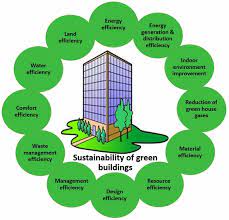COURTESY : www.environmentalleader.com
Green data center
The Global Green Data Center Market size is expected to reach $142.8 billion by 2026, rising at a market growth of 19.7% compound annual growth rate (CAGR) during the forecasted period. That’s according to a new report by ResearchAndMarkets.com.
Green data centers are used by IT companies with an aim to minimize environmental impact through determining, scheduling, and installing initiatives around the data center environment. A green data center offers identical features and abilities of a traditional data center but uses a lower amount of energy and space; because of this, green data centers are regarded as eco-friendlier.
High demand for data storage management, growing energy cost, and massive electricity consumption are some of the catalysts for market growth, the report notes. Conversely, some of the obstacles to the market growth are low awareness regarding the benefits of a green data center, massive initial cost, and inflexibility with the current data center. With the help of energy-efficient data centers, the operation cost of a data center and consumption of energy in powering the facility and infrastructure can be reduced.
The major determinant for the growth of the green data center market is the concern about the increasing energy consumption by data centers over the past few years. This has encouraged governments across the globe to manage energy consumption more closely. With cloud computing becoming highly energy-efficient and depending on renewable sources, other industries like transportation, manufacturing, and buildings is expected to adopt green data centers in order to cut down their own emissions.
Google made headlines recently when the company announced its Virginia-based data centers will use 24/7 carbon-free energy under a 10-year supply contract with the AES Corporation. AES will become the sole supplier of the data centers’ carbon-free energy needs on an annual basis, sourcing energy from a portfolio of wind, solar, hydro, and battery storage resources to be developed or contracted by AES. The agreement will start supply later in 2021 and is one step in meeting Google’s previously announced goal to run its business on 100% carbon-free energy on an hourly basis by 2030.




